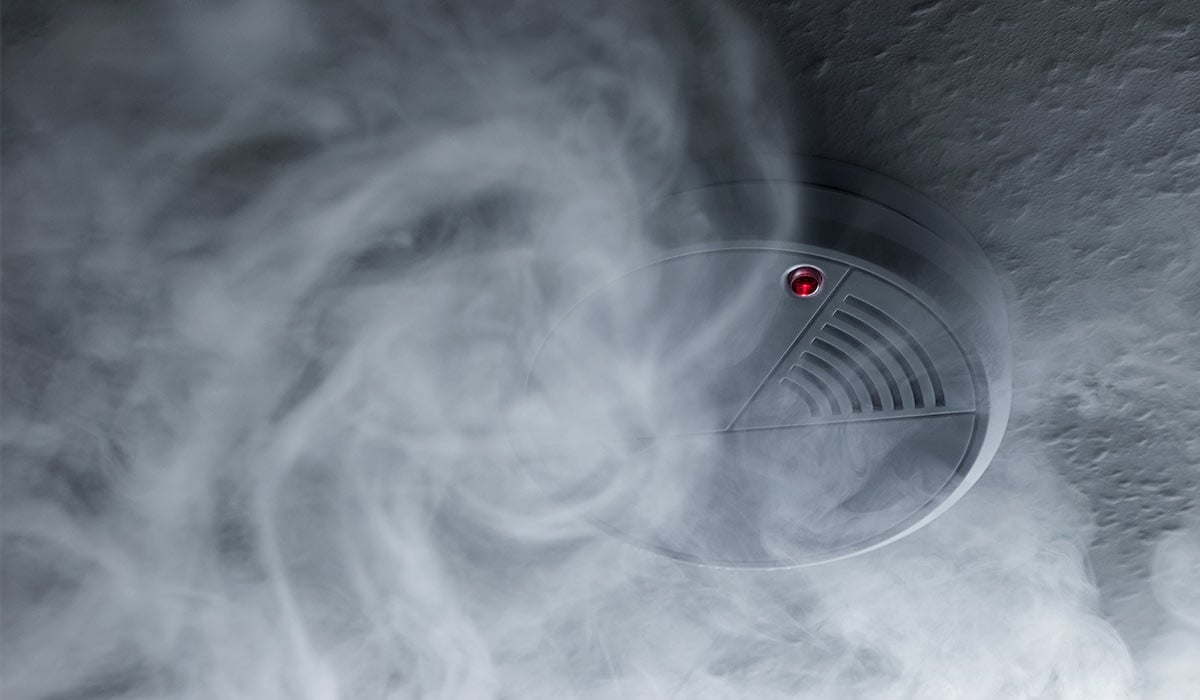In 2014, police officers, paramedics, and fire crews rushed to Huntington Station on Long Island, New York in response to reports a woman had fallen and hit her head in the basement of Legal Sea Foods restaurant at the shopping mall Walt Whitman Shops.
When emergency responders began feeling dizzy, they recognized it as carbon monoxide (CO) poisoning—swiftly bringing a woman and man, both overcome by the gas, to the hospital in critical condition.
However, upon arrival, the man—restaurant manager Steven Nelson—was pronounced dead.
More than two dozen others, including restaurant workers and medics, were also taken to hospitals for CO poisoning—as investigators later discovered, due to a leak in the flue pipe of the water heater.
This colorless, odorless, tasteless gas is responsible for the most non-drug poisoning deaths in the United States, reads a Centers for Disease Control and Prevention (CDC) factsheet.
When furnaces, heaters, cars, generators, and other equipment operate in enclosed or partly enclosed areas, the CO released builds up, and can be lethal to people and pets, a CDC analysis states.
In an effort to mitigate fatalities, state legislatures have required numerous carbon monoxide detector regulations in residential, institutional—and now, commercial—occupancies.
It is essential businesses heed these New York State and Tri-State regulatory requirements—not only to remain compliant with updated standards, but save lives.
Carbon Monoxide Regulatory Requirements
In response to the deadly leak at Legal Sea Foods in Huntington Station, New York State passed Steven Nelson’s Law, requiring every restaurant and commercial building statewide to install and maintain CO detectors by June 2015. Failure to comply can result in $1,000 per day of violation, imprisonment up to one year, or both.
In recent years, local legislatures have passed additional regulations: Local Law 191 of 2018 (LL191) mandated existing commercial buildings with fuel-burning appliances and fire protection systems (in Group A-1, A-2, A-3, B, or M occupancies) install CO detectors by January 1, 2021, it states.
This includes restaurants, stores, office buildings (excluding some educational facilities and libraries), and indoor public assembly places (excluding indoor sporting arenas), according to New York building code news provider Decoder.
Although CO detectors were required in residential and some institutional occupancies, commercial buildings—such as Legal Sea Foods restaurant in Huntington Station—were previously exempt, underscoring the tragic necessity of such devices wherever CO poisoning is possible.
If LL191 applies to your business occupancy, it is vital to ensure compliance with Section 908.7.3 of New York City building code by installing the appropriate CO detector type, in the correct locations.
What Type of CO Detectors Do I Need?
In compliance with LL191 and state code, CO detectors must include:
- Built-In Sounder Bases
- Capabilities to Transmit Signals to a Central Supervising Station
- An Audible & Visual Alarm at a Constantly Attended Location
Where Do I Need to Install the CO Detectors?
According to 1 RCNY §908-01, these detectors must be installed in buildings equipped with a fire alarm system in the following locations:
- Rooms Containing CO-Producing Equipment (Excluding Kitchens)
- Any Room on the Same Floor as Well as One Story Above & Below the CO-Producing Equipment
- Any Corridor on a Story Where Enclosed Parking or Loading Docks Are Located, as Well as One Story Above & Below
- Any Parking Attendant’s Office or Booth Within an Enclosed Garage or Loading Dock
Carbon Monoxide Safety Practices
Each year, 430 people die from accidental CO poisoning and 50,000 people visit the emergency department, the aforementioned CDC analysis reads.
In preventing your personnel from becoming part of these statistics, it is vital commercial, retail, and industrial spaces promote the following CO safety practices from the U.S. Department of Housing and Urban Development (HUD):
- Never idle your car in an enclosed garage.
- Ensure fuel-burning appliances are professionally installed and functioning properly.
- Use vented appliances and replace dirty air filters on cooling and heating systems.
- Never run a generator, pressure washer, or gasoline-powered engine in a basement or enclosed space—even if windows are open—unless equipment is professionally installed and vented.
- Never use an outdoor grill indoors.
- Of course, install CO detectors in proper areas.
Double R: Your One-Stop Shop for CO Detection System Installation & Compliance
Amid these expanding regulations, it is crucial CO detection systems remain compliant and function optimally in an emergency—not only to avoid forced closures, hefty fines, and other consequences of non-compliance, but to save lives.
In ensuring your commercial, retail, and industrial spaces are up to code with all evolving state requirements, it is prudent to trust an industry leader to guarantee not only proper installation, but continuous optimal function.
“We’ve been doing a lot of carbon monoxide detection additions to existing systems and/or new systems as needed,” says Derek Splendorio, Vice President of Double R Security, “to keep the safety of the space, and so they don’t get a fine.”
Boasting more than 30 years of industry experience, Double R’s expert technicians regularly install CO detectors, fire alarms, security systems, and more, and conduct regular inspection and testing to ensure compliance and proper function.
“Every township has a different requirement,” Splendorio explains, “and Double R Security is very versed in every township and their individual requirements to guide the patrons, employees, building owners, and homeowners to educate and make the process as painless as possible.”
Double R’s unparalleled "customer first" reputation, incomparable workmanship, and seamless installations have made it the one-stop security solution in the Tri-State area—from CO detectors and fire alarms to cellular alarm monitoring and card access systems.
Whether installing your new CO, cellular monitoring, or fire security systems, or ensuring compliance with updated standards, our experienced technicians will ensure your systems are up to code, compliant with local regulations, and functioning optimally every time.
With more than 30 years of experience, Double R is an industry leader in carbon monoxide, fire, and security system installation and inspection—ensuring your systems are operational, compliant, and performing optimally. Double R is a one-stop shop for installing CO detectors, fire alarms, emergency lighting, card access systems, and more.
Contact us today to learn more.


